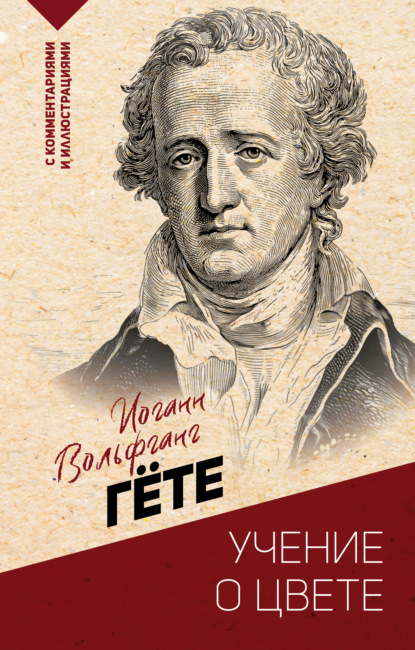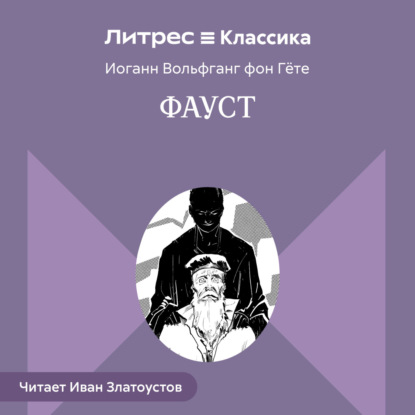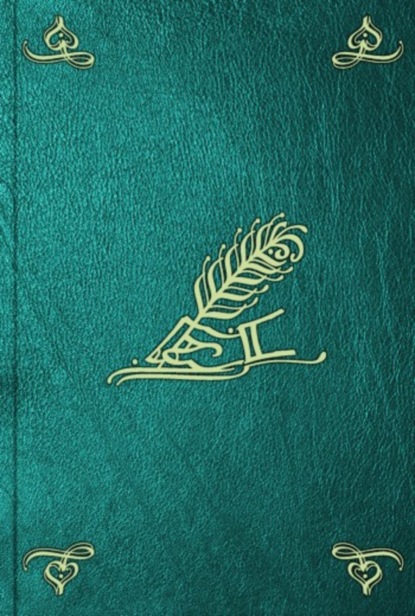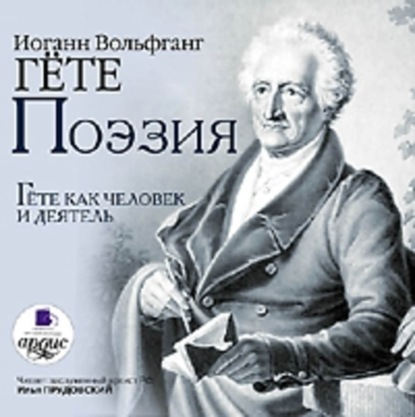 Полная версия
Полная версияПолная версия:
Иоганн Вольфганг Гёте The Autobiography of Goethe
- + Увеличить шрифт
- - Уменьшить шрифт

Johan Wolfgang von Goethe
The Autobiography of Goethe / Truth and Poetry: From My Own Life
ADVERTISEMENT
Before the following translation was commenced, the first Ten Books had already appeared in America. It was the intention of the Publisher to reprint these without alteration, but on comparing them with the original, it was perceived that the American version was not sufficiently faithful, and therefore the present was undertaken. The Translator, however, is bound to acknowledge, that he found many successful renderings in the work of his predecessor, and these he has engrafted without hesitation.
The title "Truth and Poetry" is adopted in common with the American translation, as the nearest rendering of Wahrheit und Dichtung. The "Prose and Poetry of my Life" would, perhaps, convey to the English reader the exact meaning of the Author, although not literally his words.
AUTHOR'S PREFACE
As a preface to the present work, which, perhaps, more than another requires one, I adduce the letter of a friend, by which so serious an undertaking was occasioned.
"We have now, my dear friend, collected the twelve parts of your poetical works, and on reading them through, find much that is known, much that is unknown; while much that had been forgotten is revived by this collection. These twelve volumes, standing before us, in uniform appearance, we cannot refrain from regarding as a whole; and one would like to sketch therefrom some image of the author and his talents. But it cannot be denied, considering the vigour with which he began his literary career, and the length of time which has since elapsed, that a dozen small volumes must appear incommensurate. Nor can one forget that, with respect to the detached pieces, they have mostly been called forth by special occasions, and reflect particular external objects, as well as distinct grades of inward culture; while it is equally clear, that temporary moral and æsthetic maxims and convictions prevail in them. As a whole, however, these productions remain without connexion; nay, it is often difficult to believe that they emanate from one and the same writer.
"Your friends, in the meantime, have not relinquished the inquiry, and try, as they become more closely acquainted with your mode of life and thought, to guess many a riddle, to solve many a problem; indeed, with the assistance of an old liking, and a connexion of many years? standing, they find a charm even in the difficulties which present themselves. Yet a little assistance here and there would not be unacceptable, and you cannot well refuse this to our friendly entreaties.
"The first thing, then, we require, is that your poetical works, arranged in the late edition according to some internal relations, may be presented by you in chronological order, and that the states of life and feeling which afforded the examples that influenced you, and the theoretical principles by which you were governed, may be imparted in some kind of connexion. Bestow this labour for the gratification of a limited circle, and perhaps it may give rise to something that will be entertaining and useful to an extensive one. The author, to the most advanced period of his life, should not relinquish the advantage of communicating, even at a distance, with those whom affection binds to him; and if it is not granted to everyone to step forth anew, at a certain age, with surprising and powerful productions, yet just at that period of life when knowledge is most perfect, and consciousness most distinct, it must be a very agreeable and re-animating task to treat former creations as new matter, and work them up into a kind of Last Part, which may serve once more for the edification of those who have been previously edified with and by the artist."
This desire, so kindly expressed, immediately awakened within me an inclination to comply with it; for, if in the early years of life our passions lead us to follow our own course, and, in order not to swerve from it, we impatiently repel the demands of others, so, in bur later days, it becomes highly advantageous to us, should any sympathy excite and determine us, cordially, to new activity. I therefore instantly undertook the preparatory labour of separating the poems of my twelve volumes, both great and small, and of arranging them according to years. I strove to recall the times and circumstances under which each had been produced. But the task soon grew more difficult, as full explanatory notes and illustrations were necessary to fill up the chasms between those which had already been given to the world. For, in the first place, all on which I had originally exercised myself were wanting, many that had been begun and not finished were also wanting, and of many that were finished even the external form had completely disappeared, haring since been entirely reworked and cast into a different shape. Besides, I had also to call to mind how I had laboured in the sciences and other arts, and what, in such apparently foreign departments, both individually and in conjunction with friends, I had practised in silence, or had laid before the public.
All this I wished to introduce by degrees for the satisfaction of my well-wishers; but my efforts and reflections always led me further on; since while I was anxious to comply with that very considerate request, and laboured to set forth in succession my internal emotions, external influences, and the steps which, theoretically and practically, I had trod, I was carried out of my narrow private sphere into the wide world. The images of a hundred important men, who either directly or indirectly had influenced me, presented themselves to my view; and even the prodigious movements of the great political world, which had operated most extensively upon me, as well as upon the whole mass of my contemporaries, had to be particularly considered. For this seems to be the main object of Biography, to exhibit the man in relation to the features of his time; and to show to what extent they have opposed or favoured his progress; what view of mankind and the world he has formed from them, and how far he himself, if an artist, poet, or author, may externally reflect them. But for this is required what is scarcely attainable, namely, that the individual should know himself and his age: himself, so far as he has remained the same under all circumstances; his age, as that which carries along with it, determines and fashions, both the willing and the unwilling; so that one may venture to pronounce, that any person born ten years earlier or later would have been quite a different being, both as regards his own culture and his influence on others.
In this manner, from such reflections and endeavours, from such recollections and considerations, arose the present delineation; and from this point of view, as to its origin, will it be the best enjoyed and used, and most impartially estimated. For anything further it may be needful to say, particularly with respect to the half-poetical, half-historic mode of treatment, an opportunity will, no doubt, frequently occur in the course of the narrative.
PART THE FIRST
FIRST BOOK
Childhood – the City of FrankfortOn the 28th of August, 1749, at mid-day, as the clock struck twelve, I came into the world, at Frankfort-on-the-Maine. My horoscope was propitious: the sun stood in the sign of the Virgin, and had culminated for the day; Jupiter and Venus looked on him with a friendly eye, and Mercury not adversely; while Saturn and Mars kept themselves indifferent; the Moon alone, just full, exerted the power of her reflection all the more, as she had then reached her planetary hour. She opposed herself, therefore, to my birth, which could not be accomplished until this hour was passed.
These good aspects, which the astrologers managed subsequently to reckon very auspicious for me, may have been the causes of my preservation; for, through the unskilfulness of the midwife, I came into the world as dead, and only alter various efforts was I enabled to see the light. This event, which had put our household into sore straits, turned to the advantage of my fellow-citizens, inasmuch as my grandfather, the Schultheiss1, John Wolfgang Textor, took occasion from it to have an accoucheur established, and to introduce or revive the tuition of midwives, which may have done some good to those who were born after me.
When we desire to recall what befel us in the earliest period of youth, it often happens that we confound what we have heard from others with that which we really possess from our own direct experience. Without, therefore, instituting a very close investigation into the point, which after all could lead to nothing, I am conscious that we lived in an old house, which in fact consisted of two adjoining houses, that had been opened into each other. A spiral stair-case led to rooms on different levels, and the unevenness of the stories was remedied by steps. For us children, a younger sister and myself, the favourite resort was a spacious floor below, near the door of which was a large wooden lattice that allowed us direct communication with the street and open air. A bird-cage of this sort, with which many houses were provided, was called a Frame (Geräms). The women sat in it to sew and knit; the cook picked her salad there; female neighbours chatted with each other, and the streets consequently in the fine season wore a southern aspect. One felt at ease while in communication with the public. We children, too, by means of these frames, were brought into contact with our neighbours, of whom three brothers Von Ochsenstein, the surviving sons of the deceased Schultheiss, living on the other side of the way, won my love, and occupied and diverted themselves with me in many ways.
Our family liked to tell of all sorts of waggeries to which I was enticed by these otherwise grave and solitary men. Let one of these pranks suffice for all. A crockery fair had just been held, from which not only our kitchen had been supplied for a while with articles for a long time to come, but a great deal of small gear of the same ware had been purchased as playthings for us children. One fine afternoon, when every thing was quiet in the house, I whiled away the time with my pots and dishes in the Frame, and finding that nothing more was to be got out of them, hurled one of them into the street. The Von Ochsensteins, who saw me so delighted at the fine smash it made, that I clapped my hands for joy, cried out, "Another." I was not long in flinging out a pot, and as they made no end to their calls for more, by degrees the whole collection, platters, pipkins, mugs and all, were dashed upon the pavement. My neighbours continued to express their approbation, and I was highly delighted to give them pleasure. But my stock was exhausted, and still they shouted, "More." I ran, therefore, straight to the kitchen, and brought the earthenware, which produced a still livelier spectacle in breaking, and thus I kept running backwards and forwards, fetching one plate after another as I could reach it from where they stood in rows on the shelf. But as that did not satisfy my audience, I devoted all the ware that I could drag out to similar destruction. It was not till afterwards that any one appeared to hinder and save. The mischief was done, and in place of so much broken crockery, there was at least a ludicrous story, in which the roguish authors took special delight to the end of their days.
My father's mother, in whose house we properly dwelt, lived in a large back-room directly on the ground floor, and we were accustomed to carry on our sports even up to her chair, and when she was ill, up to her bedside. I remember her, as it were, a spirit, – a handsome, thin woman, always neatly dressed in white. Mild, gentle, and kind, she has ever remained in my memory.
The Stag-Ditch.
The street in which our house was situated passed by the name of the Stag-Ditch; but as neither stags nor ditches were to be seen, we wished to have the expression explained. They told us that our house stood on a spot that was once outside the city, and that where the street now ran had formerly been a ditch, in which a number of stags were kept. These stags were preserved and fed here because the senate every year, according to an ancient custom, feasted publicly on a stag, which was therefore always at hand in the ditch for such a festival, in case princes or knights interfered with the city's right of chase outside, or the walls were encompassed or besieged by an enemy. This pleased us much, and we wished that such a lair for tame animals could have been seen in our times.
The back of the house, from the second story particularly, commanded a very pleasant prospect over an almost immeasurable extent of neighbouring gardens, stretching to the very walls of the city. But, alas! in transforming what were once public grounds into private gardens, our house and some others lying towards the corner of the street had been much stinted, since the houses towards the horse-market had appropriated spacious out-houses and large gardens to themselves, while a tolerably high wall shut us out from these adjacent paradises.
On the second floor was a room which was called the garden-room, because they had there endeavoured to supply the want of a garden by means of a few plants placed before the window. As I grew older, it was there that I made my favourite, not melancholy but somewhat sentimental, retreat. Over these gardens, beyond the city's walls and ramparts, might be seen a beautiful and fertile plain; the same which stretches towards Höchst. In the summer season I commonly earned my lessons there, and watched the thunder-storms, but could never look my fill at the setting sun, which went down directly opposite my windows. And when, at the same time, I saw the neighbours wandering through their gardens taking care of their flowers, the children playing, parties of friends enjoying themselves, and could hear the bowls rolling and the nine pins dropping, it early excited within me a feeling of solitude, and a sense of vague longing resulting from it, which, conspiring with the seriousness and awe implanted in me by Nature, exerted its influence at an early age, and showed itself more distinctly in after years.
The old, many cornered, and gloomy arrangement of the house was moreover adapted to awaken dread and terror in childish minds. Unfortunately, too, the principle of discipline that young persons should be early deprived of all fear for the awful and invisible, and accustomed to the terrible, still prevailed. We children, therefore, were compelled to sleep alone, and when we found this impossible, and softly slipped from our beds to seek the society of the servants and maids, our father, with his dressing-gown turned inside out, which disguised him sufficiently for the purpose, placed himself in the way, and frightened us back to our resting-places. The evil effect of this any one may imagine. How is he who is encompassed with a double terror to be emancipated from fear? My mother, always cheerful and gay, and willing to render others so, discovered a much better pedagogical expedient. She managed to gain her end by rewards. It was the season for peaches, the plentiful enjoyment of which she promised us every morning if we overcame our fears during the night. In this way she succeeded, and both parties were satisfied.
In the interior of the house my eyes were chiefly attracted by a series of Roman Views, with which my father had ornamented an ante-room. They were engravings by some of the accomplished predecessors of Piranesi, who well understood perspective and architecture, and whose touches were clear and excellent. There I saw every day, the Piazza del Popolo, the Colosseum, the Piazza of St. Peter's and St. Peter's Church, within and without, the castle of St. Angelo, and many other places. These images impressed themselves deeply upon me, and my otherwise very laconic father was often so kind as to furnish descriptions of the objects. His partiality for the Italian language, and for every thing pertaining to Italy, was very decided. A small collection of marbles and natural curiosities, which he had brought with him thence, he often showed to us; and he devoted a great part of his time to a description of his travels, written in Italian, the copying and correction of which he slowly and accurately completed, in several parcels, with his own hand. A lively old teacher of Italian, called Giovinazzi, was of service to him in this work. The old man moreover did not sing badly, and my mother every day must needs accompany him and herself upon the clavichord, and thus I speedily learned the Solitario bosco ombroso so as to know it by heart before I understood it.
My father was altogether of a didactic turn, and in his retirement from business liked to communicate to others what he knew or was able to do. Thus, dining the first years of their marriage, he had kept my mother busily engaged in writing, playing the clavichord, and singing, by which means she had been laid under the necessity of acquiring some knowledge and a slight readiness in the Italian tongue.
The Puppet-Show.
Generally we passed all our leisure hours with my grandmother, in whose spacious apartment we found plenty of room for our sports. She contrived to engage us with various trifles, and to regale us with all sorts of nice morsels. But one Christmas evening, she crowned all her kind deeds, by having a puppet-show exhibited before us, and thus unfolding a new world in the old house. This unexpected drama attracted our young minds with great force; upon the Boy particularly it made a very strong impression, which continued to vibrate with a great and lasting effect.
The little stage with its speechless personages, which at the outset had only been exhibited to us, but was afterwards given over for our own use and dramatic vivification, was prized more highly by us children, as it was the last bequest of our good grandmother, whom encroaching disease first withdrew from our sight, and death next tore away from our hearts for ever. Her departure was of still more importance to our family, as it drew after it a complete change in our condition.
As long as my grandmother lived, my father had refrained from any attempt to change or renovate the house, even in the slightest particular, though it was known that he had pretty large plans of building, which were now immediately begun. In Frankfort, as in many other old towns, when anybody put up a wooden structure, he ventured, for the sake of space, to make not only the first, but each successive story project over the lower one, by which means narrow streets especially were rendered somewhat dark and confined. At last a law was passed, that every one putting up a new house from the ground, should confine his projections to the first upper story, and carry the others up perpendicularly. My father, that he might not lose the projecting space in the second story, caring little for outward architectural appearance, and anxious only for the good and convenient arrangement of the interior, resorted to the expedient which others had employed before him, of propping the upper part of the house, until one part after another had been removed from the bottom upwards and a new house, as it were, inserted in its place. Thus, while comparatively none of the old structure remained, the new one merely passed for a repair. Now as the tearing down and building up was done gradually, my father determined hot to quit the house, that he might better direct and give his orders – as he possessed a good knowledge of the technicalities of building. At the same time he would not suffer his family to leave him. This new epoch was very surprising and strange for the children. To see the rooms in which they had so often been confined and pestered with wearisome tasks and studies, the passages they had played in, the walls which had always been kept so carefully clean, all falling before the mason's hatchet and the carpenter's axe – and that from the bottom upwards; to float as it were in the air, propped up by beams, being, at the same time, constantly confined to a certain lesson, or definite task – all this produced a commotion in our young heads that was not easily settled. But the young people felt the inconvenience less, because they had somewhat more space for play than before, and had many opportunities of swinging on beams, and playing at see-saw with the boards.
At first my father obstinately persisted in carrying out his plan; but when at last even the roof was partly removed, and the rain reached our beds, in spite of the carpets that had been taken up, converted into tarpaulin, and stretched over as a defence, he determined, though reluctantly, that the children should be entrusted for a time to some kind friends, who had already offered their services, and sent to a public school.
This transition was rather unpleasant; for when the children who had all along been kept at home in a secluded, pure, refined, yet strict manner, were thrown among a rude mass of young creatures, they were compelled unexpectedly to suffer everything from the vulgar, bad, and even base, since they lacked both weapons and skill to protect themselves.
The Walk Round Frankfort.
It was properly about this period that I first became acquainted with my native city, which I strolled over with more and more freedom, in every direction, sometimes alone, and sometimes in the company of lively companions. To convey to others in any degree the impression made upon me by these grave and revered spots, I must here introduce a description of my birth-place, as in its different parts it was gradually unfolded to me. I loved more than anything else to promenade on the great bridge over the Maine. Its length, its firmness, and its fine appearance, rendered it a notable structure, and it was, besides, almost the only memorial left from ancient times of the precautions due from the civil government to its citizens. The beautiful stream above and below bridge, attracted my eye, and when the gilt weathercock on the bridge-cross glittered in the sunshine, I always had a pleasant feeling. Generally I extended my walk through Sachsenhausen, and for a Kreutzer was ferried comfortably across the river. I was now again on this side of the stream, stole along to the wine market, and admired the mechanism of the cranes when goods were unloaded. But it was particularly entertaining to watch the arrival of the market-boats, from which so many and such extraordinary figures were seen to disembark. On entering the city, the Saalhof, which at least stood on the spot where the Castle of Emperor Charlemagne and his successors was reported to have been, was greeted every time with profound reverence. One liked to lose oneself in the old trading town, particularly on market-days, among the crowd collected about the church of St. Bartholomew. From the earliest times, throngs of buyers and sellers had gathered there, and the place being thus occupied, it was not easy in later days to bring about a more roomy and cheerful arrangement. The booths of the so-called Pfarreisen were very important places for us children, and we carried many a Batzen to them in order to purchase sheets of coloured paper stamped with gold animals. But seldom, however, could one make one's way through the narrow, crowded, and dirty market-place. I call to mind, also, that I always flew past the adjoining meat-stalls, narrow and disgusting as they were, in perfect horror. On the other hand, the Roman Hill (Römerberg) was a most delightful place for walking. The way to the New-Town, along by the new shops, was always cheering and pleasant; yet we regretted that a street did not lead into the Zeil by the Church of Our Lady, and that we always had to go a round-about way by the Hasengasse, or the Catherine Gate. But what chiefly attracted the child's attention, were the many little towns within the town, the fortresses within the fortress; viz., the walled monastic enclosures, and several other precincts, remaining from earlier times, and more or less like castles – as the Nuremberg Court, the Compostella, the Braunfels, the ancestral house of the family of Stallburg, and several strongholds, in later days transformed into dwellings and warehouses. No architecture of an elevating kind was then to be seen in Frankfort, and every thing pointed to a period long past and unquiet, both for town and district. Gates and towers, which defined the bounds of the old city, – then further on again, gates, towers, walls, bridges, ramparts, moats, with which the new city was encompassed, – all showed, but too plainly, that a necessity for guarding the common weal in disastrous times had induced these arrangements, that all the squares and streets, even the newest, broadest, and best laid out, owed their origin to chance and caprice and not to any regulating mind. A certain liking for the antique was thus implanted in the Boy, and was specially nourished and promoted by old chronicles and wood-cuts, as for instance, those of Grave relating to the siege of Frankfort. At the same time a different taste was developed in him for observing the conditions of mankind, in their manifold variety and naturalness, without regard to their importance or beauty. It was, therefore, one of our favourite walks, which we endeavoured to take now and then in the course of a year, to follow the circuit of the path inside the city walls. Gardens, courts, and back buildings extend to the Zwinger; and we saw many thousand people amid their little domestic and secluded circumstances. From the ornamental and show gardens of the rich, to the orchards of the citizen, anxious about his necessities – from thence to the factories, bleaching-grounds, and similar establishments, even to the burying-grounds – for a little world lay within the limits of the city – we passed a varied, strange, spectacle, which changed at every step, and with the enjoyment of which our childish curiosity was never satisfied. In fact, the celebrated Devil-upon-two-sticks, when he lifted the roofs of Madrid at night, scarcely did more for his friend, than was here done for us in the bright sunshine and open air. The keys that were to be made use of in this journey, to gain us a passage through many a tower, stair and postern, were in the hands of the authorities, whose subordinates we never failed to coax into good-humour.





